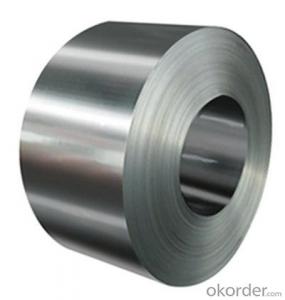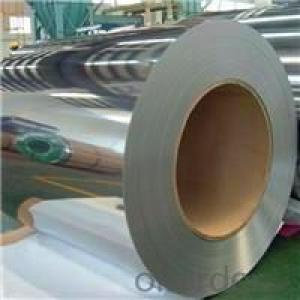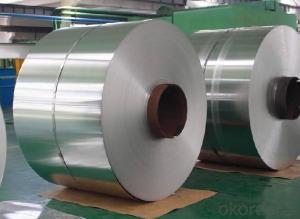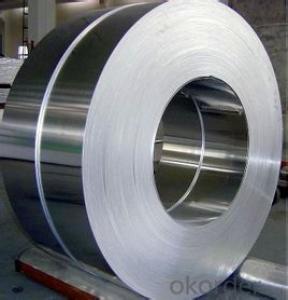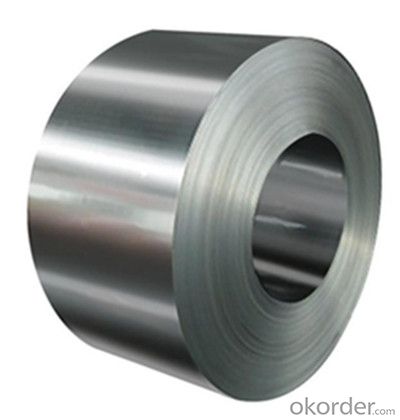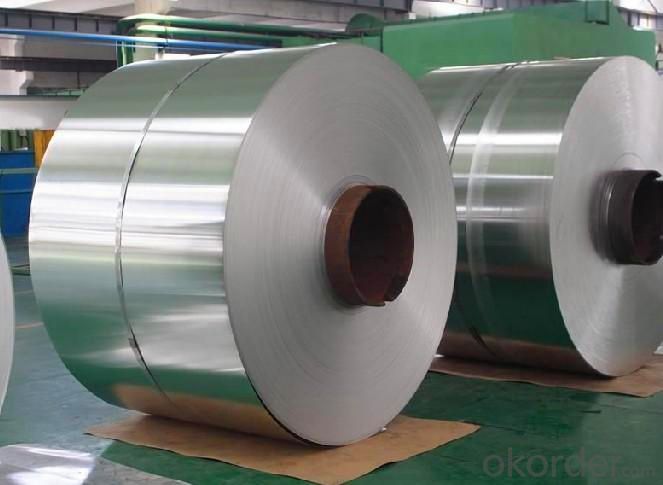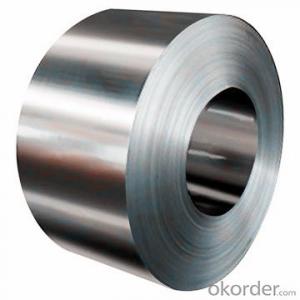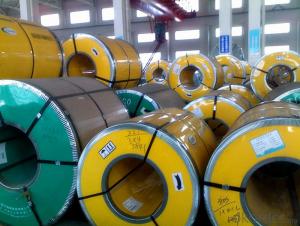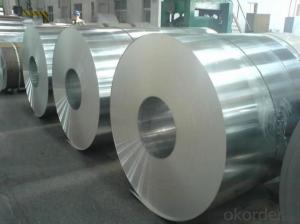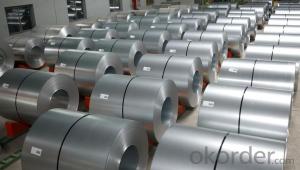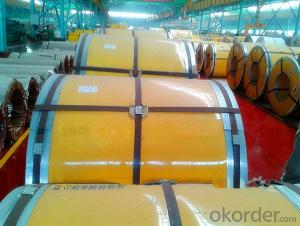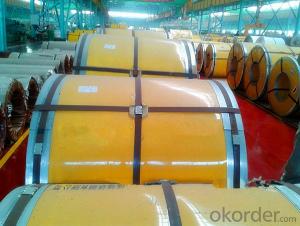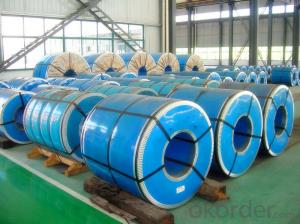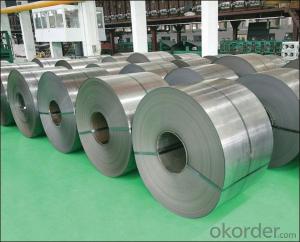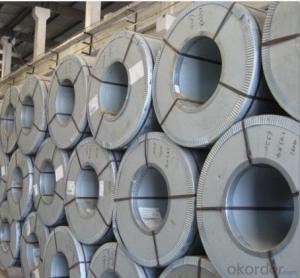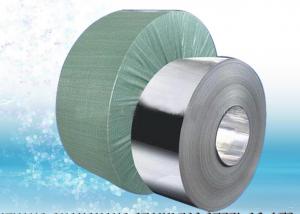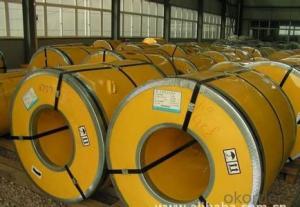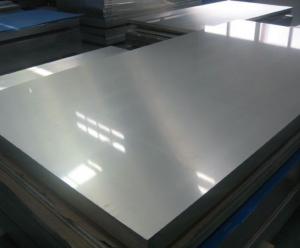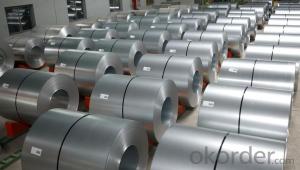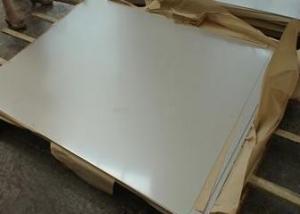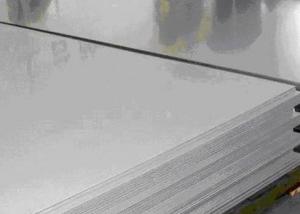Stainless Steel Coil Cold Rolled 201 J4 Surface 2B with High Quality
- Loading Port:
- China main port
- Payment Terms:
- TT or LC
- Min Order Qty:
- 100 m.t.
- Supply Capability:
- 10000 m.t./month
OKorder Service Pledge
OKorder Financial Service
You Might Also Like
1. Structure of Stainless Steel Coil Cold Rolled 201 Descriptions
Stainless Steel 201 is a new kind of Austenite stainless steel by used Mn, N replace Ni. The steel has good corrosion resistance and hot / cold processing performance, instead of 304 stainless steel products for used in the not high of corrosive environment, such as indoor, inland city outdoor etc.
2. Main Features of the Stainless Steel Coil Cold Rolled 201
Product name: Stainless Steel Coil Cold Rolled 201
Thickness: 0.2mm to 1.5mm
Technical: Cold Rolled
Width: 10mm to 1240mm
Type: 200 Series
Length: As customer's requested
Standard: JIS, SUS, AISI, ASTM
Grade: 201-J1, 201-J4, AISI201, AISI202…
Finish: BA, 2B, 8K, NO.3, NO.4, HL…
MOQ: 25 Metric Tons
Hardness: Low Hard(190 HV Max); Half Hard(240-280HV); Full Hard(42-60 HRC)
Ship Term: FOB any port, China or CFR Destination port
Delivery Time: 15 to 20 day after the receive the deposit or 100%LC
Payment Terms: TT 30% for deposit, Balance against the copy of B/L, or 100%LC
Packaging: By wooden pallet, wooden case or according to customer's request
3. Stainless Steel Coil Cold Rolled 201 Images
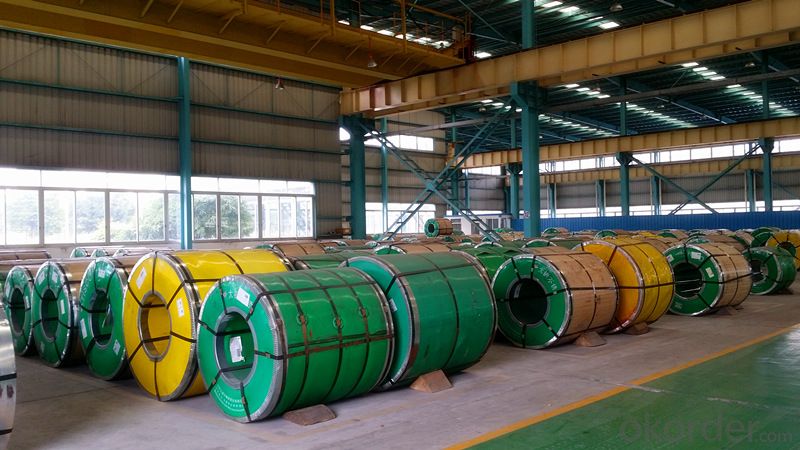
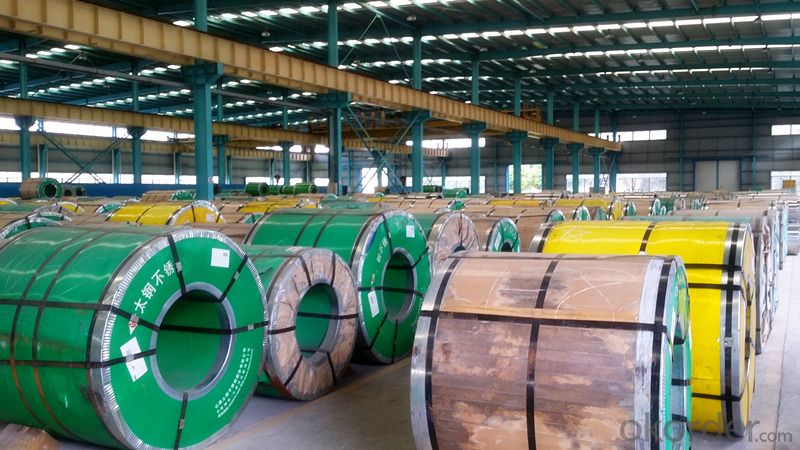
4. Stainless Steel Coil Cold Rolled 201 Specifications
Mechanical Property Contrast | YS (Mpa) | TS (Mpa) | EL(%) | HV | REMARK |
Stainless Steel 201 | 426 | 880 | 52 | 224 | 1.0t |
Stainless Steel 304 | 285 | 710 | 58 | 165 | 1.0t |
Stainless Steel 200 Series Chemicals Contrast (wt. %) | ||||||||
Chemicals | C | Si | Mn | Cr | Ni | N | Other | |
205 | 0.12-0.25 | ≤0.75 | 14.0-15.0 | 16.5-18.0 | 1.0-1.75 | 0.32-0.4 | ||
JIS, | 201 | ≤0.15 | ≤1.0 | 5.5-7.5 | 16.0-18.0 | 3.5-5.5 | ≤0.25 | - |
201L | ≤0.03 | ≤0.75 | 5.5-7.5 | 16.0-18.0 | 3.5-5.5 | ≤0.25 | - | |
202 | ≤0.15 | ≤1.0 | 7.5-10.0 | 17.0-19.0 | 4.0-6.0 | ≤0.25 | - | |
201LN | ≤0.03 | ≤0.75 | 6.4-7.5 | 16.0-17.5 | 4.0-5.5 | 0.1-0.25 | Cu≤1.0 | |
India | 201-J1 | ≤0.08 | ≤0.75 | 7.0-8.0 | 15.0-17.0 | 4.0-5.0 | ≤0.1 | Cu≤1.5 |
201-J3 | ≤0.08 | ≤0.75 | 9.0-10.5 | 14.0-16.0 | 2.0-3.0 | ≤0.15 | Cu≤2.0 | |
201-J4 | ≤0.10 | ≤0.75 | 8.5-10.0 | 15.0-16.0 | ≤1.2 | ≤0.2 | Cu≤2.0 | |
America | 204 | ≤0.03 | ≤1.0 | 7.0-9.0 | 15.0-17.0 | 1.5-3.0 | 0.15-0.3 | (Cu) |
H400 | ≤0.10 | ≤1.0 | 6.0-9.0 | 17.0-19.5 | ≤3.5 | ≤0.3 | - | |
Japan | YUS130S | 0.09 | 0.5 | 11.0 | 18.0 | 6.5 | 0.35 | - |
NTK S-4 | 0.17 | 0.43 | 14.7 | 17.7 | 1.3 | 0.35 | - | |
NM15M | 0.08 | 0.8 | 14.5 | 17.0 | 4.3 | 0.33 | - | |
Europe America | 219 | ≤0.04 | ≤0.75 | 8.0-10.0 | 19.0-21.5 | 5.5-7.5 | 0.15-0.4 | - |
Cromanite | ≤0.08 | ≤1.0 | 9.5-11.0 | 18.0-20.0 | ≤1.0 | 0.4-0.6 | - | |
201 Surface | Characteristic and Application of Stainless Steel Coil Cold Rolled 201 |
2B | The surface brightness and flatness of 2B is better than 2D then through a special surface treatment to improve its mechanical properties,2B could nearly Satisfy comprehensive uses |
No.4 | Polished with abrasive belt of grit#150#180, have better brightness with discontinuous coarse stria, but thinner than NO.3, are used as bathtub buildings inner and electrical appliances kitchen utensils and food processing. |
BA | Cold rolled, bright annealed and skin-passed, the product have excellent brightness like mirror kitchen apparatus, etc. |
8K | The product have excellent brightness and prefer bright can be the mirror. |
5. FAQ of Stainless Steel Coil Cold Rolled 201
Q: Are you factory or trader?
A: We certainly are stainless steel manufacturer and have processing plant.
Q: Can you provide mill test certificate?
A: Yes! Mill test certificate for both hot rolled raw material coils and cold rolled coils are available.
Q: Can you make DDQ (Deep drawing quality)?
A: Yes. Our material has been widely used for producing stainless steel pots and stainless steel sinks, which have strict request for good deep drawing quality.
Q: How to get a sample?
A: Free samples are available for your checking and testing. And to get free samples, please send us your detailed receiving address (including post code) and your DHL/FEDEX/UPS account for collecting samples, courier cost will be paid in your side.
Q: How about your company?
A world class manufacturer & supplier of castings forging in stainless steel, is one of the large-scale professional investment casting production bases in China, consisting of both casting foundry forging and machining factory. Annually more than 90000 tons Precision casting and forging parts are exported to markets in Europe, America and Japan. OEM casting and forging service are available, all according to customer’s requirements.
Q: How to guarantee the quality of the products?
A: We have established the international advanced quality management system,every link from raw material to final product we have strict quality test; We resolutely put an end to unqualified products flowing into the market. At the same time, we will provide necessary follow-up service assurance.
Q: How long can we receive the product after purchase?
A: In the purchase of product within 20 working days, we will arrange the factory delivery as soon as possible. The specific time of receiving is related to the state and position of customers. Commonly 20 to 40 working days can be served.
- Q: Can stainless steel strips be painted?
- Indeed, it is possible to paint stainless steel strips. However, it should be noted that stainless steel possesses a non-porous surface, which poses a challenge for paint adherence. To achieve a successful paint job, it is recommended to follow these steps: 1. Clean the surface thoroughly: Eliminate any dirt, grease, or contaminants by diligently washing the stainless steel strips with mild detergent and water. Afterward, ensure the strips are rinsed and dried entirely. 2. Sand the surface gently: Employ fine-grit sandpaper to delicately roughen the stainless steel strips' surface. This will facilitate better paint adherence. Be cautious not to inflict damage or scratches during the sanding process. 3. Apply a metal surface primer: Administer a primer specifically designed for metal surfaces. This will enhance paint adherence and establish a smooth foundation for the topcoat. Adhere to the manufacturer's instructions regarding application and drying time. 4. Paint the strips: Once the primer has dried, administer a high-quality paint suitable for metal surfaces. To ensure improved adhesion and durability, it is advisable to utilize a paint specially formulated for stainless steel. Employ a brush or sprayer to apply the paint, following the manufacturer's instructions regarding application and drying time. 5. Allow proper drying and curing: Allocate sufficient time for the painted stainless steel strips to dry and cure completely. This will guarantee proper paint adherence and a durable finish. It is crucial to bear in mind that painted stainless steel strips may require regular maintenance and touch-ups to uphold their appearance and safeguard against corrosion.
- Q: What are the weight and length options for stainless steel strips?
- The weight and length options for stainless steel strips can vary depending on the specific requirements and specifications of the project or application. Stainless steel strips typically come in a range of thicknesses, widths, and lengths to cater to different needs. Common weight options for stainless steel strips range from light to heavy, with varying thicknesses and widths available. Similarly, the length options can vary from shorter lengths suitable for small projects to longer lengths for larger applications. It is important to consult with suppliers or manufacturers to determine the specific weight and length options available for stainless steel strips based on your requirements.
- Q: Can stainless steel strips be used in automotive applications?
- Yes, stainless steel strips can be used in automotive applications. Stainless steel is known for its corrosion resistance, durability, and strength, making it an ideal material for various automotive components. It is commonly used in the manufacturing of exhaust systems, fuel tanks, body panels, trim, and other structural components. Stainless steel strips can be formed, welded, and fabricated into different shapes and sizes, providing versatility and flexibility in automotive design. Additionally, stainless steel's aesthetic appeal and ability to maintain its appearance over time make it a popular choice for automotive applications.
- Q: What is the typical lead time for stainless steel strip production?
- The lead time for stainless steel strip production can vary depending on different factors. These factors include the complexity of the order, the quantity needed, and the current market conditions. In general, lead times can range from a few weeks to several months. For standard production of stainless steel strip, where the specifications and quantity needed are normal, the lead time is usually shorter. In these cases, it typically takes around 4-8 weeks to complete the production process. This includes sourcing materials, processing, and quality control. However, for customized or specialty production of stainless steel strip, which involves specific dimensions, finishes, or unique requirements, the lead time can be longer. This may require additional time for design consultations, tooling development, and testing. As a result, the lead times can be 2-6 months or even longer. External factors such as supply and demand, availability of raw materials, and production capacities can also affect lead times. When there is high demand or disruptions in the supply chain, lead times may increase due to higher order volumes and potential delays in material sourcing. To get an accurate estimate of the lead time based on your specific requirements, it is important to communicate with the stainless steel strip manufacturer or supplier. They will consider various factors and provide you with a more precise timeline for production and delivery.
- Q: What are the common widths of stainless steel strips?
- Depending on the specific application and industry, the widths of stainless steel strips can differ. In general, stainless steel strips are available in widths ranging from 0.5 inches (12.7 mm) to 36 inches (914.4 mm). These widths are commonly utilized in industries like automotive, construction, manufacturing, and aerospace. It is important to mention that custom widths can also be manufactured to meet specific project requirements.
- Q: Can stainless steel strips be powder coated?
- Yes, stainless steel strips can be powder coated. Powder coating is a popular method of applying a protective and decorative finish to various materials, including steel. The process involves applying a dry powder to the surface of the stainless steel strips and then curing it in an oven. This results in a durable and uniform coating that adheres well to the metal surface. Powder coating offers several benefits, such as resistance to chipping, scratching, and fading, as well as enhanced durability and corrosion resistance. It also provides a wide range of color options and can be used to achieve different finishes, such as glossy, matte, or textured.
- Q: Are stainless steel strips suitable for marine environments?
- Stainless steel strips prove to be an ideal choice for marine environments due to their exceptional resistance to corrosion. The remarkable anti-corrosive properties of stainless steel have earned it a prominent position in various marine applications. The presence of chromium in stainless steel triggers the formation of a safeguarding oxide layer on its surface, effectively preventing both rusting and corrosion. This oxide layer serves as a formidable barrier, shielding the steel from the harsh marine conditions, including saltwater, moisture, and humidity. Moreover, stainless steel possesses formidable strength and durability, enabling it to withstand the rigorous demands that marine environments impose, such as waves, impacts, and fluctuations in temperature. Consequently, stainless steel strips are extensively utilized in marine sectors like boat construction, shipbuilding, offshore structures, and marine equipment.
- Q: Can stainless steel strips be used in medical devices?
- Yes, stainless steel strips can be used in medical devices. Stainless steel is a common material used in the manufacturing of medical devices due to its unique properties. It is corrosion-resistant, which is essential for medical devices that come into contact with bodily fluids and tissues. Stainless steel also has high strength, durability, and excellent biocompatibility, making it suitable for various medical applications such as surgical instruments, implants, and diagnostic equipment. Additionally, stainless steel can be easily sterilized, ensuring the safety and effectiveness of medical devices.
- Q: Can stainless steel strips be used in the aerospace engine components?
- Aerospace engine components can indeed utilize stainless steel strips. Stainless steel is renowned for its impressive strength, durability, and ability to withstand corrosion, making it ideal for various applications in the aerospace sector. When it comes to engine components, specifically turbine blades, stainless steel strips are employed for their exceptional heat resistance and mechanical properties. These strips are capable of enduring high temperatures and pressures, ensuring reliable performance even in extreme conditions. Furthermore, they offer excellent fatigue resistance, which is vital for components that regularly experience stress and strain cycles within the engine. In conclusion, the incorporation of stainless steel strips in aerospace engine components can enhance the efficiency, safety, and lifespan of aircraft engines.
- Q: Can stainless steel strips be used in the automotive exhaust system?
- Yes, stainless steel strips can be used in the automotive exhaust system. Stainless steel is a durable and corrosion-resistant material, making it suitable for withstanding the high temperatures and harsh conditions of the exhaust system. It provides excellent resistance to rust and corrosion, ensuring longevity and reliability in automotive applications.
Send your message to us
Stainless Steel Coil Cold Rolled 201 J4 Surface 2B with High Quality
- Loading Port:
- China main port
- Payment Terms:
- TT or LC
- Min Order Qty:
- 100 m.t.
- Supply Capability:
- 10000 m.t./month
OKorder Service Pledge
OKorder Financial Service
Similar products
Hot products
Hot Searches
Related keywords
